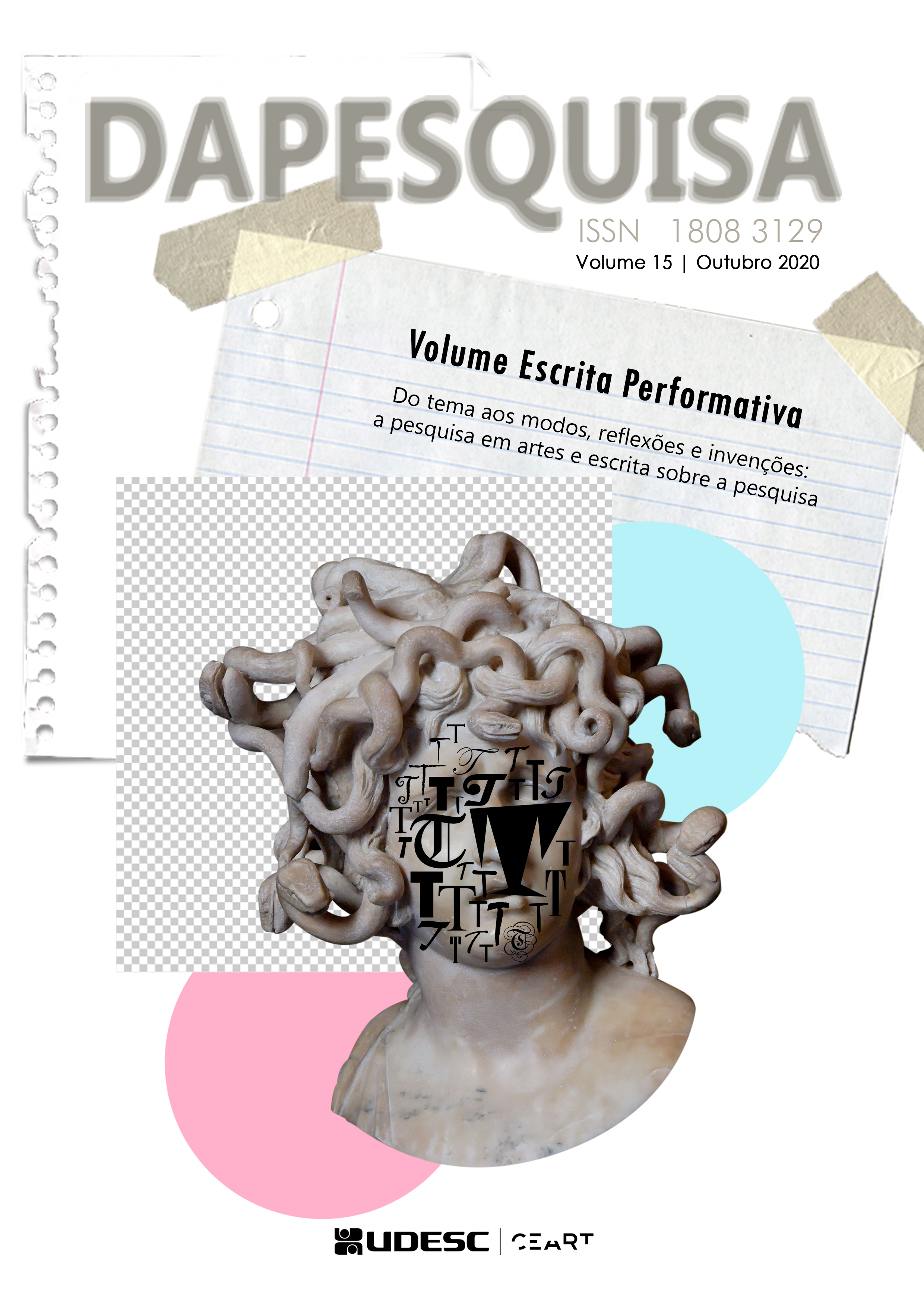On ancestry, my grandmother Eliza and the Russian Theatre
DOI:
https://doi.org/10.5965/1808312915252020e0030Keywords:
Russian drama, Genealogy, Dance, Performing arts, Writing and artAbstract
This panel is the result of a pursuit of a writing style to a research on Art. Entwining childhood and Ukrainian ancestral memories, the seam and the embroidery emerged as a qualitative strategy to deal with the body's thinking. Such memories organized
thus the way this body creates and builds its connections. Since the weave resumes doings apprehended in childhood, the thread enters the textile and ties the links among academic, artistic and pedagogical creation which here are such an amalgam. Consequentily, three dimensions of sewing and embroidering may be
pointed out: the metaphorical seams which tied ideas into a text, the metaphorical weaving of dance movements and the concrete seam of the text-tissue which binds
the texts among them. All seams, therefore, embroider overlapping meanings and produce aesthetic results.
Downloads
References
MACHADO, A. M. Bisa Bia, Bisa Bel. Rio de Janeiro: Editora Salamandra, 2007.
MEIERHOLD, V. O Teatro de Feira. In: THAÍS, Maria. Na Cena do Dr. Dapertutto:
poética e pedagogia em V.E.Meierhold:1911 a 1916. São Paulo: Perspectiva:
Fapesp, 2009.
OLIVEIRA, E. Filosofia da Ancestralidade: corpo e mito na filosofia da
educação brasileira. Curitiba: Gráfica e Editora Popular, 2007.
SANTOS, I. F.. Corpo e Ancestralidade: uma proposta pluricultural de dança-arteeducação. São Paulo: Terceira Margem, 2006.
SODRÉ, M. Pensar nagô. Rio de Janeiro: Vozes, 2017.
STRUMINSKI, E. A ética no montanhismo. Desenvolvimento e Meio Ambiente,
Curitba, n. 7, p. 121-130, 2003. Disponível em:
https://revistas.ufpr.br/made/article/view/3048/2439 Acesso em 04 ago. 2020.
THAÍS, M. Na cena do Dr. Dapertutto: poética e pedagogia em V. E. Meierhold,
a 1916. São Paulo: Perspectiva, 2009.
Published
How to Cite
Issue
Section
License
Copyright (c) 2020 Thábata Marques Liparotti

This work is licensed under a Creative Commons Attribution 4.0 International License.
Authors who publish in this journal agree to the following terms:
The authors retain the copyright and grant the journal the right of first publication, with the study being simultaneously licensed under the Creative Commons Attribution-Noncommercial License, which allows the sharing of work with acknowledgment of authorship and initial publication in this journal.
This journal, following the recommendations of the Open Access movement, provides public access to all its content, following the principle that free access to research leads to a greater global exchange of knowledge.
Plagiarism in all its forms constitutes unethical publication behavior and is unacceptable. The Journal DAPesquisa reserves the right to use software or other methods of detecting plagiarism to analyze submitted works.





